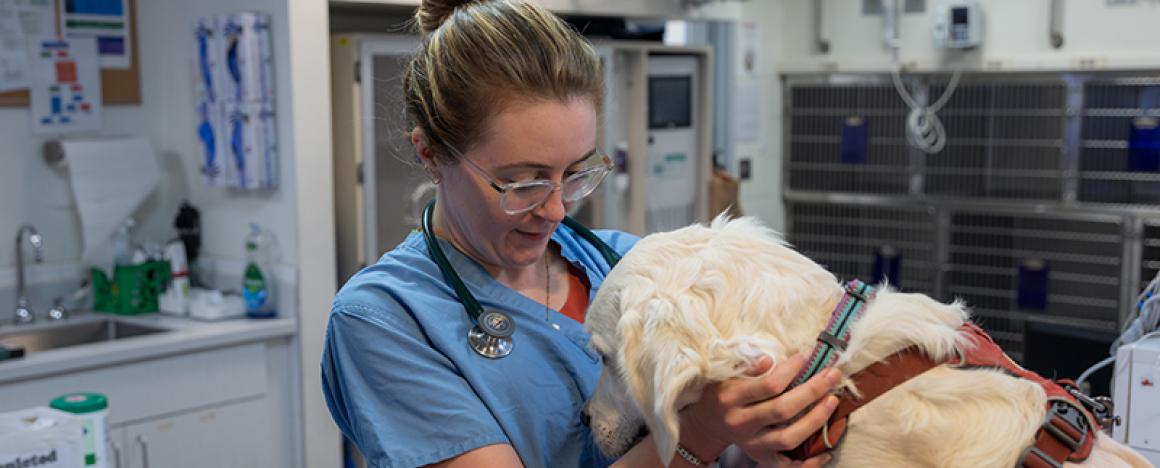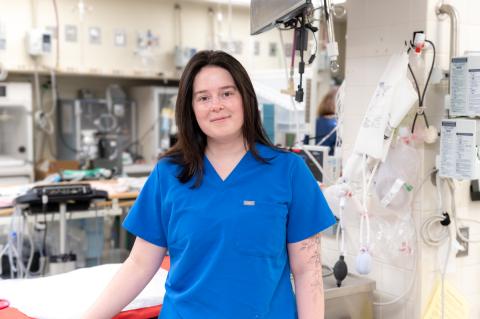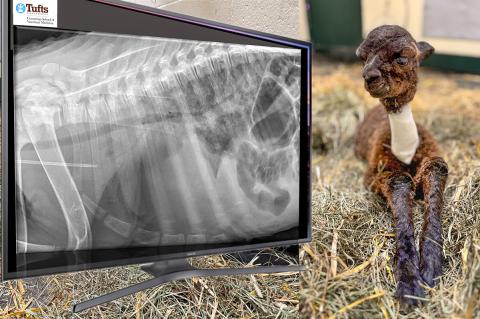
Emergency Medicine & Critical Care

Referring Veterinarians
Referring a client to Foster Hospital is easy with veterinarian liaison support.
Upon arrival at the hospital, your pet will be triaged, stabilized (if necessary), then a veterinarian and a final-year veterinary student will meet with you to discuss options for your pet's care and treatment. This may include repair of minor wounds or lacerations, treatment of gastrointestinal upset, definitive repair of trauma, and diagnosis and treatment of cardiopulmonary, endocrine or renal problems. Diagnostic imaging (radiographs and ultrasound) is available around the clock as needed, as is diagnostic laboratory testing for evaluation of blood samples. More advanced treatments include blood transfusion, specialized coagulation testing and emergency surgical procedures.
Our Emergency Service and Intensive Care Unit is home to the largest veterinary critical care training program in the country. Equally important, the Emergency Service is staffed by people who have pets themselves and understand the deep value of the human-animal bond. Our staff recognizes that having to use the emergency service is stressful, and will work to keep you informed and to help you understand what is happening.
Advanced Techniques in Emergency Medicine & Critical Care
- Mechanical Ventilation
- Wound Management
- Blood Component Therapy
- Post-surgical Critical Care
- Anticoagulation Monitoring
- Cardiopulmonary Resuscitation
- Continuous Cardiac monitoring (EKG)
- Advanced Fluid Therapy
- Shock Stabilization

















